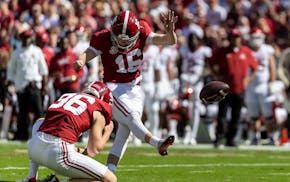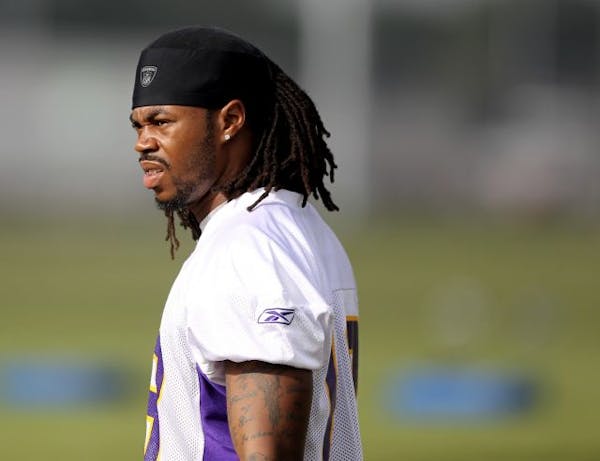A moment incomprehensible to fans of North America's most popular and profitable sports league is now, finally, upon us.
At a tick past 11 p.m. Thursday, the three-year standoff between billionaire owners and millionaire players could result in the NFL's first work stoppage since 1987. Barring a new collective bargaining agreement or a temporary extension of the current one, all NFL business except next month's draft is expected to cease as the owners lock out the players. Meanwhile, all concerns for the 2011 offseason, preseason, regular season and Super Bowl XLVI officially shift to threat level Orange.
If you find this inconceivable for a $9 billion industry, you're not alone. That's a popular opinion, and one the owners and players should keep in mind as the most loyal fans in America grow more restless the closer they get to August with no NFL to worship.
Unlike the player strikes in 1983 and 1987, it appears the owners are coming up short in the court of public opinion this time.
Owners claim the status quo is a recipe for financial destruction of the league but resist the players' request to open the books and prove it. Owners possess franchises worth an average of $1.02 billion, charge fans in some cities up to five figures just for the license to buy season tickets, and oversee a thriving empire that drew a record 111 million TV viewers for last month's Super Bowl.
The two major stumbling blocks since the owners opted out of the current CBA in 2008 are dividing revenue and extending the regular season from 16 to 18 games. The owners get $1 billion off the top before giving the players 59.5 percent of the remaining $8 billion. The owners now want another $1 billion off the top.
"Essentially, the owners are telling the players that, 'We want you to give up even more money than you already are giving up, and in return, we'll work you two extra games,'" Marvin Miller, former executive director of the Major League Baseball Players Association, told fanhouse.com. "It's just absurd."
Meanwhile, the players are trying to play the role of victim in this public relations struggle. With the balance of power now in their favor, the players embrace the status quo with a battle cry "Let Us Play!"
Victim, however, is a risky role for a professional athlete, especially at a time when typical fans are struggling financially. Players earn an average of $1.8 million per year. Last year's rookie minimum salary was $325,000. And since the salary cap was put in place in 1994, it has gone from $35 million per team to $127 million per team in 2009, the last year with a cap.
The sides met Wednesday for a ninth day of talks with George H. Cohen of the Federal Mediation and Conciliation Service in Washington, D.C. The owners then met in nearby Chantilly, Va., before canceling another meeting scheduled for Thursday. Later Wednesday, NFL Commissioner Roger Goodell and two members of the owners' labor committee returned to meet with Cohen. Mediation is expected to resume Thursday.
Panthers owner Jerry Richardson, a member of the NFL's labor committee, told the Sports Business Journal on Wednesday that he's optimistic a deal can get done. Whether that signals the first hint of progress in a three-year stalemate or wishful thinking remains to be seen.
Also uncertain is the effect a federal judge in Minneapolis had on the labor negotiations with a ruling on Tuesday.
U.S. District Judge David S. Doty ruled the NFL violated agreements with the players union by renegotiating $4 billion in television rights revenue designed to help sustain the owners in the event they locked out the players.
In overruling Special Master Stephen Burbank, Doty ruled the NFL breached its agreement to maximize television revenue by taking less money and earmarking it for themselves as a lockout fund.
Doty has called for a hearing at a yet to be determined date to decide whether to award the union monetary damages or grant its request that the owners not be allowed access to the money during a work stoppage. The ruling most likely will determine how long the owners can afford to maintain a lockout. The owners also could appeal Doty's ruling.
The whole argument could shift from collective bargaining to the courts if the players union decides to decertify on Thursday. That would enable the players to turn to Doty for injunctive relief against a lockout and to begin antitrust proceedings against the owners.
If Thursday's deadline passes without a resolution and the two sides dig in even deeper before Doty, it's anyone's guess as to how long North America's most popular and profitable sports league will keep its doors locked.
Yes, the inconceivable is a mere hours from becoming all too believable.
Mark Craig • mcraig@startribune.com

Five extra points: How NFC North teams got creative in the NFL draft

Meet the Vikings' 2024 NFL draft class

Recap: How Vikings used five picks on Day 3 of the draft

Alt family planned for peaceful night. They got an NFL draft surprise.


